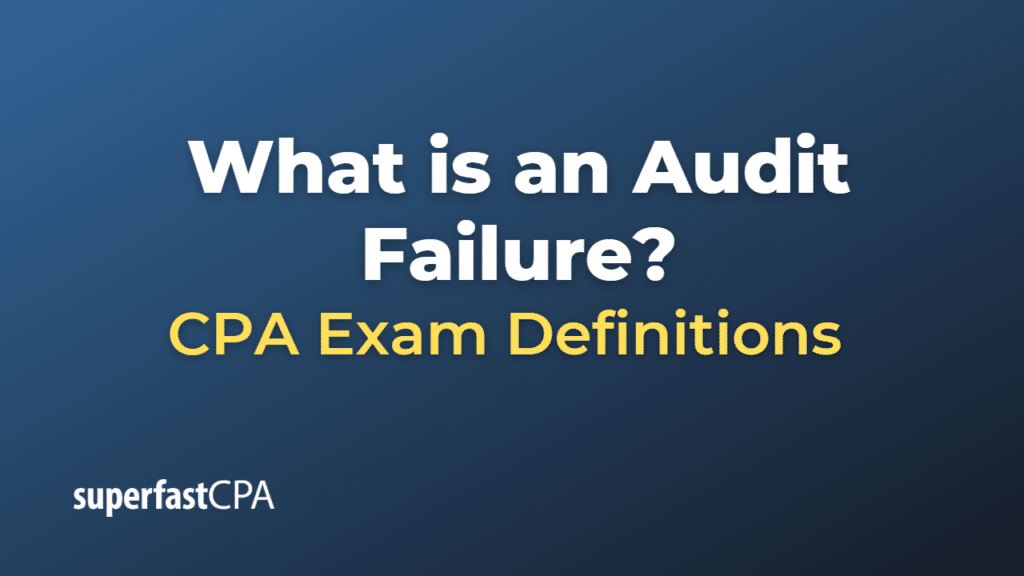Audit Failure
An audit failure refers to a situation in which an auditor provides an inappropriate audit opinion on a company’s financial statements, even though those statements contain material misstatements or inaccuracies. This means that the auditor has failed to detect or report material errors or misrepresentations in the financial statements, which can lead to users of the financial statements making incorrect or uninformed decisions based on unreliable information.
Audit failures can occur for various reasons, including:
- Inadequate audit procedures: The auditor may not have performed sufficient or appropriate audit procedures to gather enough evidence to support their opinion.
- Poor professional judgment: The auditor may have exercised poor judgment in evaluating the audit evidence, assessing the risk of material misstatement, or determining the materiality levels.
- Insufficient auditor competence or experience: The auditor may lack the necessary knowledge, skills, or experience to perform the audit effectively.
- Fraud or collusion: The auditor may have been deceived or misled by company management or other parties, making it difficult to detect material misstatements.
- Independence issues: The auditor’s objectivity or independence may be compromised due to personal or professional relationships with the company or its management.
- Time and resource constraints: The auditor may have been under pressure to complete the audit within a tight deadline, leading to shortcuts or inadequate audit work.
Audit failures can have significant consequences for the auditor, the company, and the users of the financial statements. They can result in regulatory sanctions, fines, or penalties for the auditor, as well as loss of reputation and potential legal liabilities. Additionally, audit failures can undermine investor confidence in the financial reporting process and the reliability of the audited financial statements.
Example of an Audit Failure
One well-known example of an audit failure is the case of Enron Corporation, an American energy company that filed for bankruptcy in 2001. Enron’s collapse was a result of massive accounting fraud, which was not detected by its auditor, Arthur Andersen, one of the world’s largest accounting firms at the time.
Enron used various complex accounting practices, such as off-balance-sheet special purpose entities and mark-to-market accounting, to hide its financial problems and overstate its earnings. Arthur Andersen failed to detect these issues during the audit process and issued unqualified audit opinions on Enron’s financial statements for several years.
The failure of Arthur Andersen to uncover the fraud contributed to the collapse of Enron and resulted in significant financial losses for investors and employees. The audit failure also had severe consequences for Arthur Andersen, which faced criminal charges for obstruction of justice, as it was found to have destroyed audit documents related to Enron. As a result, Arthur Andersen lost its reputation and was forced to close its auditing practice, leading to the loss of thousands of jobs.
The Enron scandal and the related audit failure prompted significant changes in the auditing and accounting profession, including the introduction of the Sarbanes-Oxley Act in 2002, which strengthened the rules and regulations governing financial reporting, corporate governance, and auditor independence in the United States.













